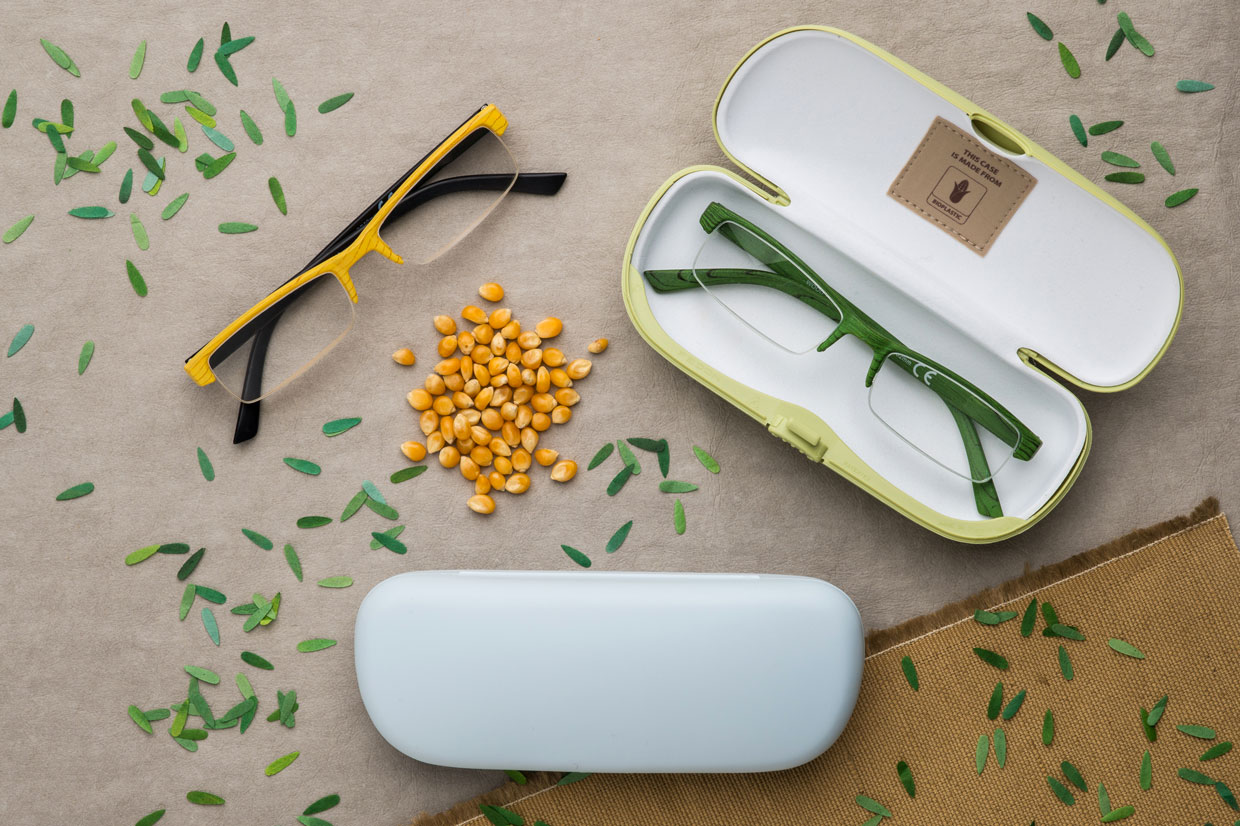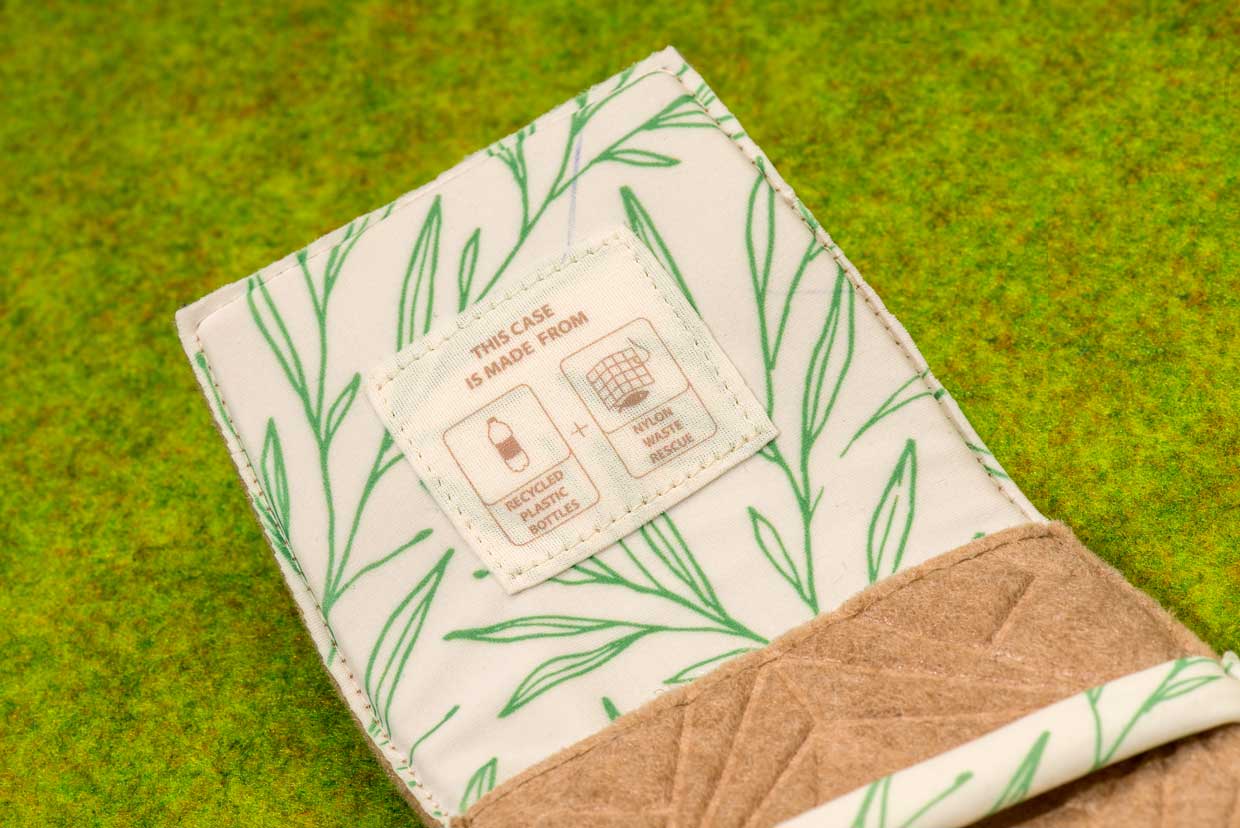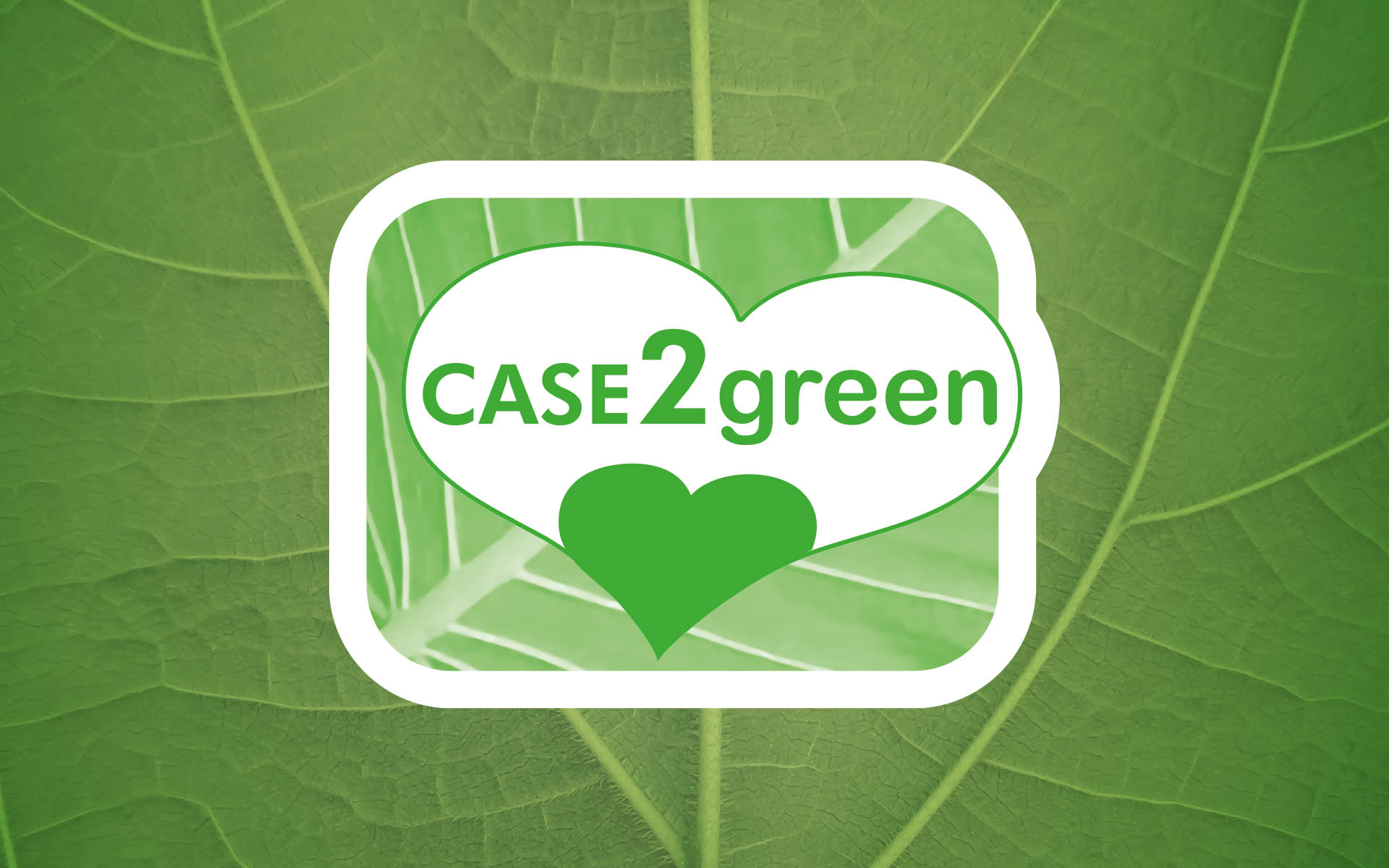CASE2green: Fedon eyeglass cases that look to the future and the sustainable production
17 February 2020
Aware of the growing sensitivity of consumers to the environment, today more and more designers are looking for ecological alternatives instead of conventional materials to make cases for ethical glasses, as well as high quality. This change also affects the luxury market, which is increasingly turning towards virtuous and sustainable production.
In the last period, Fedon's commitment to reduce the environmental impact of its products has also increased, in particular the eyeglass cases. A path that today takes shape with the CASE2green project: a real logo assigned to the eyeglass cases that meet certain requirements with regard to the chosen materials , the manufacturing processes and the transport.
Selected materials
The selected materials chosen for the CASE2green projects derive from the desire to reduce pollution , also through the study of the most innovative solutions on the market.
In fact, often, after a careful qualitative analysis, the materials coming from renewable, regenerated or recycled sources are better than the traditional ones because, in addition to offering pleasant tactile sensations , they derive from extensive research and tell an original story.
For some CASE2green projects, Fedon used materials deriving:
- from the recycling of fishing nets recovered at sea
- from the wastes of corn crops
- from the processing of apples and pineapples
- from cork and cardboard from forests of controlled origin
These are just some examples of the materials that Fedon uses for the realization of "eco-friendly" cases.


High attention to work processes
The World Bank estimates that about 17-20% of aquifer pollution is due to chemical treatments used for dyeing and processing in the textile industry. For this reason, the manufacturing processes are also subject to revision in the CASE2green projects. Fedon has chosen to use water solvents in the production of eyeglass cases. Furthermore, in 2015, the company installed a photovoltaic system at the Alpago production site to promote energy savings, limiting CO2 emissions into the environment.
Today, more than 70% of the electricity used by Fedon plants located in Italy comes from renewable sources.
Control in the transport phase
Transport has a big impact in the production chain and Fedon's commitment to sustainability strengthened through the careful choice of minimal and space-saving packaging, to reduce transport volumes. The product design also plays a fundamental role, as demonstrated by the original ORIGAMI folding eyewear case patented by Fedon, which - once closed - reduces its volume by over 60% and, consequently, its environmental impact in the phase of transport.
CASE2green is an ambitious project, which Fedon proudly carries on, to offer a product with an innovative design that combines usability and functionality with an intrinsic benefit given by the real commitment to a green and sustainable production.
Contact us
Find out how the Fedon consultant can help you design a tailored, functional, stylish and environmentally conscious eyeglass case. Contact the Fedon consultant!
